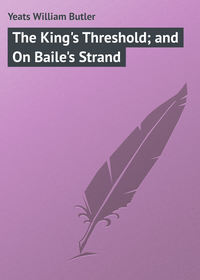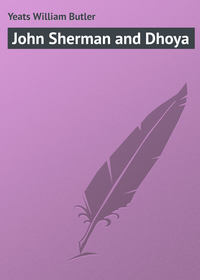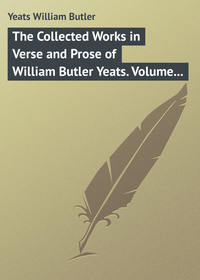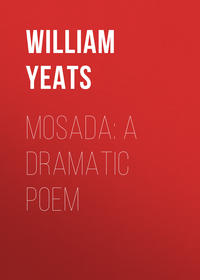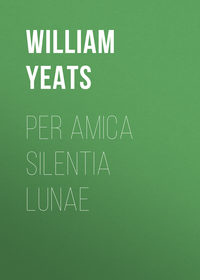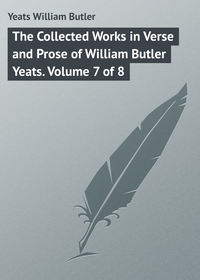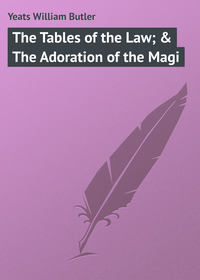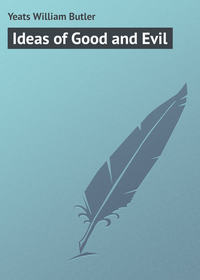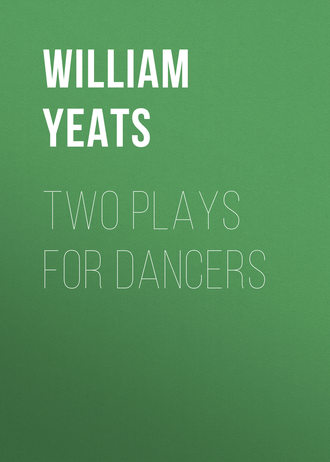 полная версия
полная версияTwo plays for dancers

William Butler Yeats
Two plays for dancers
In a note at the end of my last book 'The Wild Swans at Coole' (Cuala Press.) I explained why I preferred this kind of drama, and where I had found my models, and where and how my first play after this kind was performed, and when and how I would have it performed in the future. I can but refer the reader to the note or to the long introduction to 'Certain Noble Plays of Japan' (Cuala Press.)
W. B. Yeats. October 11th. 1918P. S. That I might write 'The Dreaming of the Bones,' Mr. W. A. Henderson with great kindness wrote out for me all historical allusions to Dervorgilla.
THE DREAMING OF THE BONES
The stage is any bare place in a room close to the wall. A screen with a pattern of mountain and sky can stand against the wall, or a curtain with a like pattern hang upon it, but the pattern must only symbolize or suggest. One musician enters and then two others, the first stands singing while the others take their places. Then all three sit down against the wall by their instruments, which are already there – a drum, a zither, and a flute. Or they unfold a cloth as in 'The Hawk's Well,' while the instruments are carried in.
FIRST MUSICIAN(or all three musicians, singing)Why does my heart beat so?Did not a shadow pass?It passed but a moment ago.Who can have trod in the grass?What rogue is night-wandering?Have not old writers saidThat dizzy dreams can springFrom the dry bones of the dead?And many a night it seemsThat all the valley fillsWith those fantastic dreams.They overflow the hills,So passionate is a shade,Like wine that fills to the topA grey-green cup of jade,Or maybe an agate cup.(speaking) The hour before dawn and the moon covered up.The little village of Abbey is covered up;The little narrow trodden way that runsFrom the white road to the Abbey of CorcomroeIs covered up; and all about the hillsAre like a circle of Agate or of Jade.Somewhere among great rocks on the scarce grassBirds cry, they cry their loneliness.Even the sunlight can be lonely here,Even hot noon is lonely. I hear a footfall —A young man with a lantern comes this way.He seems an Aran fisher, for he wearsThe flannel bawneen and the cow-hide shoe.He stumbles wearily, and stumbling prays.(A young man enters, praying in Irish)Once more the birds cry in their loneliness,But now they wheel about our heads; and nowThey have dropped on the grey stone to the north-east.(A man and a girl both in the costume of a past time, come in. They wear heroic masks)YOUNG MAN(raising his lantern)Who is there? I cannot see what you are like,Come to the light.STRANGERBut what have you to fear?YOUNG MANAnd why have you come creeping through the dark.(The Girl blows out lantern)The wind has blown my lantern out. Where are you?I saw a pair of heads against the skyAnd lost them after, but you are in the rightI should not be afraid in County Clare;And should be or should not be have no choice,I have to put myself into your hands,Now that my candle's out.STRANGERYou have fought in Dublin?YOUNG MANI was in the Post Office, and if takenI shall be put against a wall and shot.STRANGERYou know some place of refuge, have some planOr friend who will come to meet you?YOUNG MANI am to lieAt daybreak on the mountain and keep watchUntil an Aran coracle puts inAt Muckanish or at the rocky shoreUnder Finvarra, but would break my neckIf I went stumbling there alone in the dark.STRANGERWe know the pathways that the sheep tread out,And all the hiding-places of the hills,And that they had better hiding-places once.YOUNG MANYou'd say they had better before English robbersCut down the trees or set them upon fireFor fear their owners might find shelter there.What is that sound?STRANGERAn old horse gone astrayHe has been wandering on the road all night.YOUNG MANI took him for a man and horse. PoliceAre out upon the roads. In the late RisingI think there was no man of us but hatedTo fire at soldiers who but did their dutyAnd were not of our race, but when a manIs born in Ireland and of Irish stockWhen he takes part against us —STRANGERI will put you safe,No living man shall set his eyes upon you.I will not answer for the dead.YOUNG MANThe dead?STRANGERFor certain days the stones where you must lieHave in the hour before the break of dayBeen haunted.YOUNG MANBut I was not born at midnight.STRANGERMany a man born in the full daylightCan see them plain, will pass them on the high-roadOr in the crowded market-place of the town,And never know that they have passed.YOUNG MANMy GrandamWould have it they did penance everywhereOr lived through their old lives again.STRANGERIn a dream;And some for an old scruple must hang spittedUpon the swaying tops of lofty trees;Some are consumed in fire, some withered upBy hail and sleet out of the wintry North,And some but live through their old lives again.YOUNG MANWell, let them dream into what shape they pleaseAnd fill waste mountains with the invisible tumultOf the fantastic conscience. I have no dread;They cannot put me into jail or shoot me,And seeing that their blood has returned to fieldsThat have grown red from drinking blood like mineThey would not if they could betray.STRANGERThis pathwayRuns to the ruined Abbey of Corcomroe;The Abbey passed, we are soon among the stoneAnd shall be at the ridge before the cocksOf Aughanish or BailevlehanOr grey Aughtmana shake their wings and cry.(They go round the stage once)FIRST MUSICIAN(speaking) They've passed the shallow well and the flat stoneFouled by the drinking cattle, the narrow laneWhere mourners for five centuries have carriedNoble or peasant to his burial.An owl is crying out above their heads.(singing) Why should the heart take frightWhat sets it beating so?The bitter sweetness of the nightHas made it but a lonely thing.Red bird of March, begin to crow,Up with the neck and clap the wing,Red cock, and crow.(They go once round the stage. The first musician speaks.)And now they have climbed through the long grassy fieldAnd passed the ragged thorn trees and the gapIn the ancient hedge; and the tomb-nested owlAt the foot's level beats with a vague wing.(singing) My head is in a cloud;I'd let the whole world go.My rascal heart is proudRemembering and remembering.Red bird of March, begin to crow,Up with the neck and clap the wingRed cock and crow.(They go round the stage. The first musician speaks.)They are among the stones above the ashAbove the briar and thorn and the scarce grass;Hidden amid the shadow far below themThe cat-headed bird is crying out.(singing) The dreaming bones cry outBecause the night winds blowAnd heaven's a cloudy blot;Calamity can have its fling.Red bird of March begin to crow,Up with the neck and clap the wingRed cock and crow.THE STRANGERWe're almost at the summit and can rest.The road is a faint shadow there; and thereThe abbey lies amid its broken tombs.In the old days we should have heard a bellCalling the monks before day broke to pray;And when the day has broken on the ridge,The crowing of its cocks.YOUNG MANIs there no houseFamous for sanctity or architectural beautyIn Clare or Kerry, or in all wide ConnachtThe enemy has not unroofed?STRANGERClose to the altarBroken by wind and frost and worn by timeDonogh O'Brien has a tomb, a name in Latin.He wore fine clothes and knew the secrets of womenBut he rebelled against the King of ThomondAnd died in his youth.YOUNG MANAnd why should he rebel?The King of Thomond was his rightful master.It was men like Donogh who made Ireland weak —My curse on all that troop, and when I dieI'll leave my body, if I have any choice,Far from his ivy tod and his owl; have thoseWho, if your tale is true, work out a penanceUpon the mountain-top where I am to hide,Come from the Abbey graveyard?THE GIRLThey have not that luck,But are more lonely, those that are buried there,Warred in the heat of the blood; if they were rebelsSome momentary impulse made them rebelsOr the comandment of some petty kingWho hated Thomond. Being but common sinners,No callers in of the alien from overseaThey and their enemies of Thomond's partyMix in a brief dream battle above their bones,Or make one drove or drift in amity,Or in the hurry of the heavenly roundForget their earthly names; these are aloneBeing accursed.YOUNG MANAnd if what seems is trueAnd there are more upon the other sideThan on this side of death, many a ghostMust meet them face to face and pass the wordEven upon this grey and desolate hill.YOUNG GIRLUntil this hour no ghost or living manHas spoken though seven centuries have runSince they, weary of life and of men's eyes,Flung down their bones in some forgotten placeBeing accursed.YOUNG MANI have heard that there are soulsWho, having sinned after a monstrous fashionTake on them, being dead, a monstrous imageTo drive the living, should they meet its face,Crazy, and be a terror to the dead.YOUNG GIRLBut theseWere comely even in their middle lifeAnd carry, now that they are dead, the imageOf their first youth, for it was in that youthTheir sin began.YOUNG MANI have heard of angry ghostsWho wander in a wilful solitude.THE GIRLThese have no thought but love; nor joyBut that upon the instant when their penanceDraws to its height and when two hearts are wrungNearest to breaking, if hearts of shadows break,His eyes can mix with hers; nor any pangThat is so bitter as that double glance,Being accursed.YOUNG MANBut what is this strange penance —That when their eyes have met can wring them most?THE GIRLThough eyes can meet, their lips can never meet.YOUNG MANAnd yet it seems they wander side by side.But doubtless you would say that when lips meetAnd have not living nerves, it is no meeting.THE GIRLAlthough they have no blood or living nervesWho once lay warm and live the live-long nightIn one another's arms, and know their partIn life, being now but of the people of dreams,Is a dreams part; although they are but shadowsHovering between a thorn tree and a stoneWho have heaped up night on winged night; althoughNo shade however harried and consumedWould change his own calamity for theirs,Their manner of life were blessed could their lipsA moment meet; but when he has bent his headClose to her head or hand would slip in handThe memory of their crime flows up betweenAnd drives them apart.YOUNG MANThe memory of a crime —He took her from a husband's house it may be,But does the penance for a passionate sinLast for so many centuries?THE GIRLNo, no,The man she chose, the man she was chosen byCared little and cares little from whose houseThey fled towards dawn amid the flights of arrowsOr that it was a husband's and a king's;And how if that were all could she lack friendsOn crowded roads or on the unpeopled hill?Helen herself had opened wide the doorWhere night by night she dreams herself awakeAnd gathers to her breast a dreaming man.YOUNG MANWhat crime can stay so in the memory?What crime can keep apart the lips of loversWandering and alone?THE GIRLHer king and loverWas overthrown in battle by her husbandAnd for her sake and for his own, being blindAnd bitter and bitterly in love, he broughtA foreign army from across the sea.YOUNG MANYou speak of Dermot and of DervorgillaWho brought the Norman in?THE GIRLYes, yes I spokeOf that most miserable, most accursed pairWho sold their country into slavery, and yetThey were not wholly miserable and accursedIf somebody of their race at last would say:'I have forgiven them.'YOUNG MANOh, never, neverWill Dermot and Dervorgilla be forgiven.THE GIRLIf someone of their race forgave at lastLip would be pressed on lip.YOUNG MANOh, never, neverWill Dermot and Dervorgilla be forgiven.You have told your story well, so well indeedI could not help but fall into the moodAnd for a while believe that it was trueOr half believe, but better push on now.The horizon to the East is growing bright.(They go once round stage)So here we're on the summit. I can seeThe Aran Islands, Connemara Hills,And Galway in the breaking light; there tooThe enemy has toppled wall and roofAnd torn from ancient walls to boil his potThe oaken panelling that had been dearTo generations of children and old men.But for that pair for whom you would have my pardonIt might be now like Bayeux or like CaenOr little Italian town amid its wallsFor though we have neither coal nor iron oreTo make us rich and cover heaven with smokeOur country, if that crime were uncommittedHad been most beautiful. Why do you dance?Why do you gaze and with so passionate eyesOne on the other and then turn awayCovering your eyes and weave it in a dance,Who are you? what are you? you are not natural.THE GIRLSeven hundred years our lips have never met.YOUNG MANWhy do you look so strangely at one another,So strangely and so sweetly?THE GIRLSeven hundred years.YOUNG MANSo strangely and so sweetly. All the ruin,All, all their handiwork is blown awayAs though the mountain air had blown it awayBecause their eyes have met. They cannot hear,Being folded up and hidden in their dance.The dance is changing now. They have dropped their eyes,They have covered up their eyes as though their heartsHad suddenly been broken – never, neverShall Dermot and Dervorgilla be forgiven.They have drifted in the dance from rock to rock.They have raised their hands as though to snatch the sleepThat lingers always in the abyss of the skyThough they can never reach it. A cloud floats upAnd covers all the mountain head in a moment.And now it lifts and they are swept away.I had almost yielded and forgiven it all —This is indeed a place of terrible temptation.(The Musicians begin unfolding and folding a black cloth. The First Musician comes forward to the front of the stage, at the centre. He holds the cloth before him. The other two come one on either side and unfold it. They afterwards fold it up in the same way. While it is unfolded, the Young Man leaves the stage)
THE MUSICIANSI(singing) At the grey round of the hillMusic of a lost kingdomRuns, runs and is suddenly still.The winds out of Clare-GalwayCarry it: suddenly it is still.I have heard in the night airA wandering airy music;And moidered in that snareA man is lost of a sudden,In that sweet wandering snare.What finger first beganMusic of a lost kingdom.They dreamed that laughed in the sun.Dry bones that dream are bitter,They dream and darken our sun.Those crazy fingers playA wandering airy music;Our luck is withered away,And wheat in the wheat-ear withered,And the wind blows it away.IIMy heart ran wild when it heardThe curlew cry before dawnAnd the eddying cat-headed bird;But now the night is gone.I have heard from far belowThe strong March birds a-crow,Stretch neck and clap the wing,Red cocks, and crow.THE ONLY JEALOUSY OF EMER
Enter Musicians, who are dressed as in the earlier play. They have the same musical instruments, which can either be already upon the stage or be brought in by the First Musician before he stands in the centre with the cloth between his hands, or by a player when the cloth is unfolded. The stage as before can be against the wall of any room.
FIRST MUSICIAN(During the unfolding and folding of the cloth)A woman's beauty is like a whiteFrail bird, like a white sea-bird aloneAt daybreak after stormy nightBetween two furrows upon the ploughed land:A sudden storm and it was thrownBetween dark furrows upon the ploughed land.How many centuries spentThe sedentary soulIn toils of measurementBeyond eagle or mole,Beyond hearing or seeing,Or Archimedes guess,To raise into beingThat loveliness?A strange unserviceable thing,A fragile, exquisite, pale shell,That the vast troubled waters bringTo the loud sands before day has broken.The storm arose and suddenly fellAmid the dark before day had broken.What death? what discipline?What bonds no man could unbindBeing imagined withinThe labyrinth of the mind?What pursuing or fleeing?What wounds, what bloody press?Dragged into beingThis loveliness.(When the cloth is folded again the Musicians take their place against wall. The folding of the cloth shows on one side of the stage the curtained bed or litter on which lies a man in his grave-clothes. He wears an heroic mask. Another man with exactly similar clothes and mask crouches near the front. Emer is sitting beside the bed.)
FIRST MUSICIAN(speaking) I call before the eyes a roofWith cross-beams darkened by smoke.A fisher's net hangs from a beam,A long oar lies against the wall.I call up a poor fisher's house.A man lies dead or swooning,That amorous man,That amorous, violent man, renowned Cuchulain,Queen Emer at his side.At her own bidding all the rest have gone.But now one comes on hesitating feet,Young Eithne Inguba, Cuchulain's mistress.She stands a moment in the open door,Beyond the open door the bitter sea,The shining, bitter sea is crying out,(singing) White shell, white wingI will not choose for my friendA frail unserviceable thingThat drifts and dreams, and but knowsThat waters are without endAnd that wind blows.EMER(speaking) Come hither, come sit down beside the bedYou need not be afraid, for I myselfSent for you, Eithne Inguba.EITHNE INGUBANo, Madam,I have too deeply wronged you to sit there.EMEROf all the people in the world we two,And we alone, may watch together here,Because we have loved him best.EITHNE INGUBAAnd is he dead?EMERAlthough they have dressed him out in his grave-clothesAnd stretched his limbs, Cuchulain is not dead;The very heavens when that day's at hand,So that his death may not lack ceremony,Will throw out fires, and the earth grow red with blood.There shall not be a scullion but foreknows itLike the world's end.EITHNE INGUBAHow did he come to this?EMERTowards noon in the assembly of the kingsHe met with one who seemed a while most dear.The kings stood round; some quarrel was blown up;He drove him out and killed him on the shoreAt Baile's tree, and he who was so killedWas his own son begot on some wild womanWhen he was young, or so I have heard it said;And thereupon, knowing what man he had killed,And being mad with sorrow, he ran out;And after to his middle in the foamWith shield before him and with sword in hand,He fought the deathless sea. The kings looked onAnd not a king dared stretch an arm, or evenDared call his name, but all stood wonderingIn that dumb stupor like cattle in a gale,Until at last, as though he had fixed his eyesOn a new enemy, he waded outUntil the water had swept over him;But the waves washed his senseless image upAnd laid it at this door.EITHNE INGUBAHow pale he looks!EMERHe is not dead.EITHNE INGUBAYou have not kissed his lipsNor laid his head upon your breast.EMERIt may beAn image has been put into his place,A sea-born log bewitched into his likeness,Or some stark horseman grown too old to rideAmong the troops of Mananan, Son of the Sea,Now that his joints are stiff.EITHNE INGUBACry out his name.All that are taken from our sight, they say,Loiter amid the scenery of their livesFor certain hours or days, and should he hearHe might, being angry drive the changeling out.EMERIt is hard to make them hear amid their darkness,And it is long since I could call him home;I am but his wife, but if you cry aloudWith that sweet voice that is so dear to himHe cannot help but listen.EITHNE INGUBAHe loves me best,Being his newest love, but in the endWill love the woman best who loved him firstAnd loved him through the years when love seemed lost.EMERI have that hope, the hope that some day and somewhereWe'll sit together at the hearth again.EITHNE INGUBAWomen like me when the violent hour is overAre flung into some corner like old nut shells.Cuchulain, listen.EMERNo, not yet for firstI'll cover up his face to hide the sea;And throw new logs upon the hearth and stirThe half burnt logs until they break in flame.Old Mananan's unbridled horses comeOut of the sea and on their backs his horsemenBut all the enchantments of the dreaming foamDread the hearth fire.(She pulls the curtains of the bed so as to hide the sick man's face, that the actor may change his mask unseen. She goes to one side of platform and moves her hand as though putting logs on a fire and stirring it into a blaze. While she makes these movements the Musicians play, marking the movements with drum and flute perhaps.
Having finished she stands beside the imaginary fire at a distance from Cuchulain & Eithne Inguba.)
Call on Cuchulain nowEITHNE INGUBACan you not hear my voice.EMERBend over him.Call out dear secrets till you have touched his heartIf he lies there; and if he is not thereTill you have made him jealous.EITHNE INGUBACuchulain, listen.EMERYou speak too timidly; to be afraidBecause his wife is but three paces offWhen there is so great a need were but to proveThe man that chose you made but a poor choice.We're but two women struggling with the sea.EITHNE INGUBAO my beloved pardon me, that IHave been ashamed and you in so great need.I have never sent a message or called out,Scarce had a longing for your companyBut you have known and come; and if indeedYou are lying there stretch out your arms and speak;Open your mouth and speak for to this hourMy company has made you talkative.Why do you mope, and what has closed your ears.Our passion had not chilled when we were partedOn the pale shore under the breaking dawn.He will not hear me: or his ears are closedAnd no sound reaches him.EMERThen kiss that imageThe pressure of your mouth upon his mouthMay reach him where he is.EITHNE INGUBA(starting back) It is no man.I felt some evil thing that dried my heartWhen my lips touched it.EMERNo, his body stirs;The pressure of your mouth has called him home;He has thrown the changeling out.EITHNE INGUBA(going further off) Look at that armThat arm is withered to the very socket.EMER(going up to the bed)What do you come for and from where?FIGURE of CUCHULAINI have comeFrom Mananan's court upon a bridleless horse.EMERWhat one among the Sidhe has dared to lieUpon Cuchulain's bed and take his image?FIGURE of CUCHULAINI am named Bricriu – not the man – that Bricriu,Maker of discord among gods and men,Called Bricriu of the Sidhe.EMERCome for what purpose?FIGURE of CUCHULAIN(sitting up and showing its distorted face. Eithne Inguba goes out)I show my face and everything he lovesMust fly away.EMERYou people of the windAre full of lying speech and mockery.I have not fled your face.FIGURE of CUCHULAINYou are not loved.EMERAnd therefore have no dread to meet your eyesAnd to demand him of you.FIGURE of CUCHULAINFor that I have come.You have but to pay the price and he is free.EMERDo the Sidhe bargain?FIGURE of CUCHULAINWhen they set free a captiveThey take in ransom a less valued thing.The fisher when some knowledgeable manRestores to him his wife, or son, or daughter,Knows he must lose a boat or net, or it may beThe cow that gives his children milk; and someHave offered their own lives. I do not askYour life, or any valuable thing;You spoke but now of the mere chance that some dayYou'd sit together by the hearth again;Renounce that chance, that miserable hour,And he shall live again.EMERI do not questionBut you have brought ill luck on all he lovesAnd now, because I am thrown beyond your powerUnless your words are lies, you come to bargain.FIGURE of CUCHULAINYou loved your power when but newly marriedAnd I love mine although I am old and withered;You have but to put yourself into that powerAnd he shall live again.EMERNo, never, never.FIGURE of CUCHULAINYou dare not be accursed yet he has dared.EMERI have but two joyous thoughts, two things I prize,A hope, a memory, and now you claim that hope.FIGURE of CUCHULAINHe'll never sit beside you at the hearthOr make old bones, but die of wounds and toilOn some far shore or mountain, a strange womanBeside his mattress.EMERYou ask for my one hopeThat you may bring your curse on all about him.FIGURE of CUCHULAINYou've watched his loves and you have not been jealousKnowing that he would tire, but do those tireThat love the Sidhe?EMERWhat dancer of the SidheWhat creature of the reeling moon has pursued him?FIGURE of CUCHULAINI have but to touch your eyes and give them sight;But stand at my left side.(He touches her eyes with his left hand, the right being withered)
EMERMy husband there.FIGURE of CUCHULAINBut out of reach – I have dissolved the darkThat hid him from your eyes but not that otherThat's hidden you from his.EMERHusband, husband!FIGURE of CUCHULAINBe silent, he is but a phantom nowAnd he can neither touch, nor hear, nor see;The longing and the cries have drawn him hither.He heard no sound, heard no articulate sound;They could but banish rest, and make him dream,And in that dream, as do all dreaming shadesBefore they are accustomed to their freedom,He has taken his familiar form, and yetHe crouches there not knowing where he isOr at whose side he is crouched.(a Woman of the Sidhe has entered and stands a little inside the door)EMERWho is this woman?FIGURE of CUCHULAINShe has hurried from the Country-Under-WaveAnd dreamed herself into that shape that heMay glitter in her basket; for the SidheAre fishers also and they fish for menWith dreams upon the hook.EMERAnd so that womanHas hid herself in this disguise and madeHerself into a lie.FIGURE of CUCHULAINA dream is body;The dead move ever towards a dreamless youthAnd when they dream no more return no more;And those more holy shades that never livedBut visit you in dreams.EMERI know her sort.They find our men asleep, weary with war,Or weary with the chase and kiss their lipsAnd drop their hair upon them, from that hourOur men, who yet knew nothing of it all,Are lonely, and when at fall of night we pressTheir hearts upon our hearts their hearts are cold.(She draws a knife from her girdle)FIGURE of CUCHULAINAnd so you think to wound her with a knife.She has an airy body. Look and listen;I have not given you eyes and ears for nothing.(The Woman of the Sidhe moves round the crouching Ghost of Cuchulain at front of stage in a dance that grows gradually quicker, as he slowly awakes. At moments she may drop her hair upon his head but she does not kiss him. She is accompanied by string and flute and drum. Her mask and clothes must suggest gold or bronze or brass or silver so that she seems more an idol than a human being. This suggestion may be repeated in her movements. Her hair too, must keep the metallic suggestion.)


